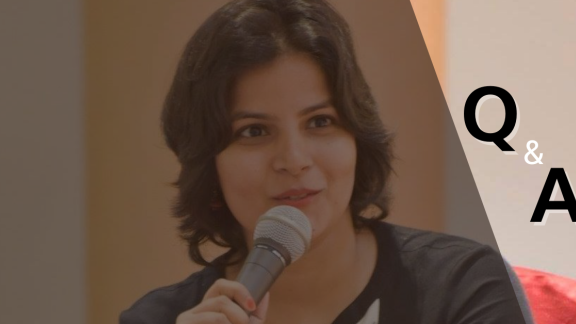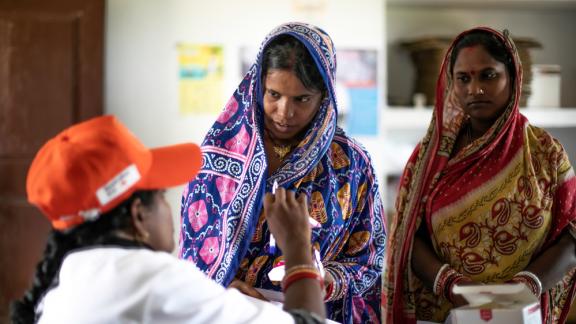What are the challenges for South Asian LGBTQI+ communities and how does one navigate those?
South Asian societies are very relational. Familial relationships substantially define the lives of people in South Asian communities. Maintaining honour is considered a crucial aspect of being able to live in the broader community. Family reactions in the process of “coming out of the closet” of LGBTQI+ people are often violent, with physical harassment and even eviction from the home. So, our movement to end discrimination against the LGBTQI+ community requires working with allies like families and social institutions like religious bodies, educational institutes, and workplaces. Without sensitizing them, it is impossible to achieve equal rights that exemplify living with dignity.
What are the different treatments provided in our clinics?
In India, our Clinic in Pune city offers queer affirmative counseling, gender identity-related counseling, laser reduction services, NCD Screening, skill development, and HIV/SRHR services. Clinics in Bangalore, Panchkula, Hyderabad, and Dharwad also offer some of these services.
We are working on opening Nepal’s first gender affirmative clinic in Kathmandu in the coming months. Besides queer affirmative counseling, gender identity-related counseling, laser reduction services at subsidized costs, NCD Screening, skill development, and HIV/SRHR services, it will also offer free hormone therapy and free consultations with queer-friendly health care professionals such as endocrinologists, psychiatrists, dermatologists, cosmetologists, and gynaecologists.
What gender affirming care (care and support that helps one accept one’s gender) services are IPPF SARO Member Associations offering now?
Our Member Association, the Family Planning Association of India, has Gender Affirming clinics that offer gender-affirming services. The Family Planning Association of Nepal will be opening a new trans-friendly clinic this year, which will support trans persons or any non-binary person in their journey towards affirming what gender they are. In Nepal, we are also supporting the movement for marriage equality.
Family Planning Association of Bangladesh has two trans-friendly clinics providing hormone therapy, laser therapy, and peer counselling services. Other than this, through advocacy-related projects, we are fighting for the rights of transgender persons in Bangladesh and working with young people from the transgender community to build capacities.
IPPF has a mission to be inclusive through our services or within the organization. Gender-affirming care services are part of our commitment to ensuring all people are free to choose their sexuality and well-being.
What are examples of appropriate language in gender affirming care?
It is essential to respect the self-identity of the queer individual. For example, when taking details of the person visiting the clinic, check how they would like to be addressed. It is equally important to explain why you are asking for specific information about how they identify themselves. Understand that people must be called by their expressed names and pronouns.
Tell us about the type of training you are hosting for IPPF SARO Member Associations?
When it comes to diversity and inclusion, many groups form part of the mix—women, LGBTQ, people living with HIV, and people with disabilities are some of them. We have undertaken some Value Clarification, and Attitude Transformation (VCAT) workshops on ‘Gender’ with the governance boards of our Member Associations in Afghanistan, Bangladesh, India, and Nepal.
Apart from these, we have done VCAT modules on ‘Diverse Sexual Orientation, Gender Identity/Expression and Sex Characteristics (SOGIESC)’ trainings with Member Associations working on projects with LGBTQI+ communities. These include Family Planning of India, Family Planning of Nepal, and RENEW Bhutan. These workshops are a great mix of theory, participatory learning, and experience sharing. The modules allow us to create a safe environment to uncover unconscious biases and work at rationalizing them for transformation in people’s attitudes and behaviour toward diverse groups. We have held several sessions and discussions with our internal staff too.
SONAL GIANI, Senior Technical Advisor, Diversity & Inclusion at IPPF SARO is an LGBTQ activist and filmmaker. She has been featured on The Better India list of ‘8 Inspiring Indian LGBT Individuals’, ‘Rainbow list of 20 LGBT Role Models’ by Cosmopolitan. She is known for her pioneering work in lesbian and bisexual women’s issues as well as LGBTQ youth work. She co-founded one of India’s largest LGBTQ youth initiatives “Yaariyan”, and ‘Umang, an LGBT initiative in Mumbai. She has worked on human rights issues and crisis handling of the queer community for about 8 years previously when she was an Advocacy Manager at The Humsafar Trust. This includes Section 377 related violations.
when
Subject
LGBTI+
Related Member Association
Family Planning Association of Nepal, Family Planning Association of India, Respect Educate Nurture Empower Women - Bhutan









